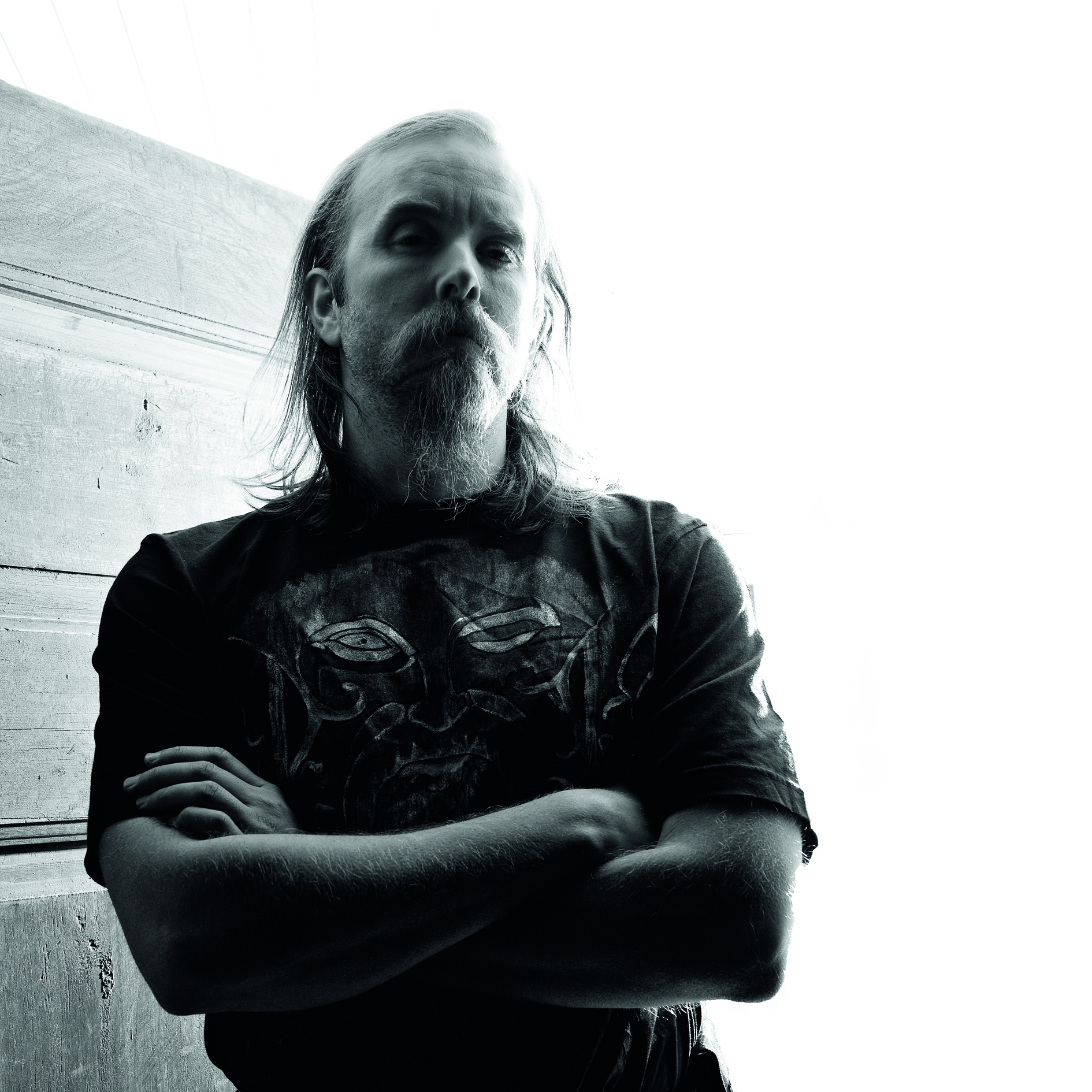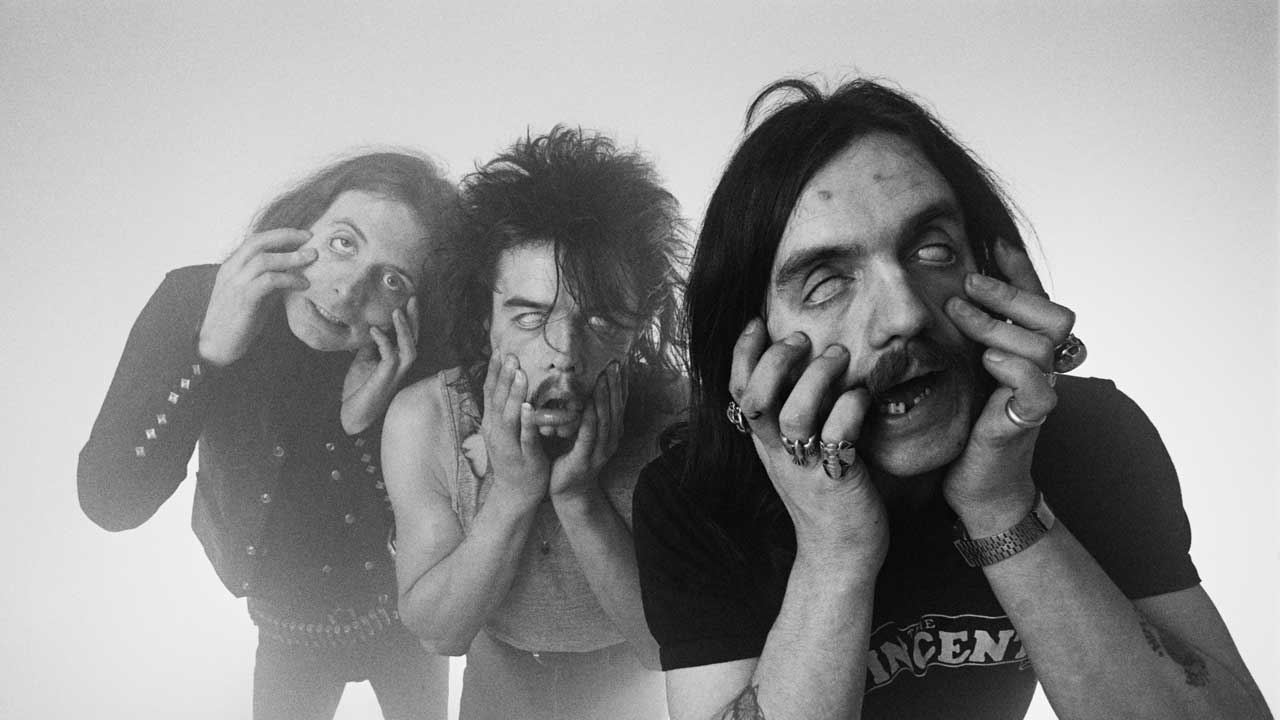The Principles Of Pandemonium: 1349's Black Metal Odyssey
Despite the curveball of 2009’s Revelations Of The Black Flame, 1349 are back to stake their place as Norwegian black metal’s standard bearers.

Select the newsletters you’d like to receive. Then, add your email to sign up.
You are now subscribed
Your newsletter sign-up was successful
Want to add more newsletters?

Every Friday
Louder
Louder’s weekly newsletter is jam-packed with the team’s personal highlights from the last seven days, including features, breaking news, reviews and tons of juicy exclusives from the world of alternative music.

Every Friday
Classic Rock
The Classic Rock newsletter is an essential read for the discerning rock fan. Every week we bring you the news, reviews and the very best features and interviews from our extensive archive. Written by rock fans for rock fans.

Every Friday
Metal Hammer
For the last four decades Metal Hammer has been the world’s greatest metal magazine. Created by metalheads for metalheads, ‘Hammer takes you behind the scenes, closer to the action, and nearer to the bands that you love the most.

Every Friday
Prog
The Prog newsletter brings you the very best of Prog Magazine and our website, every Friday. We'll deliver you the very latest news from the Prog universe, informative features and archive material from Prog’s impressive vault.
Time, as Einstein taught us, is subjective. How long is four years, for example? Well, it’s certainly a long time for, say, a dog – less so for an oak tree. And for a black metal band... now that’s a bit more complicated.
On the one hand things move quickly in this fast-evolving genre; key bands form and split, milestone albums are unleashed, individual countries become more or less relevant to the international scene. But black metal is also a cult where true quality is always revered regardless of the prevailing trends. Case in point: although a lot has changed since the release of 1349’s Demonoir album – not least with regards to the relevance of Norwegian black metal itself – absence, it seems, has only made the scene’s heart grow fonder with regard to the band. And there’s definitely a lot of hungry fans waiting for the new album, Massive Cauldron Of Chaos, to finally drop.
For his part, vocalist and frontman Ravn seems impressively unfazed by the whole situation. Perhaps it’s because he’s been here before. In fact, 1349 have always had a rather erratic release schedule, with another four-year gap occurring between 2005’s Hellfire and 2009’s ambient, experimental Revelations Of The Black Flame and then a mere year passing before the release of the next album, 2010’s Demonoir. This time it seems that touring has contributed to much of the delay, but more importantly the founding member is quick to point out that, by its very nature, 1349 is not a band able to stick to any sort of predictable schedule…
“When an album is released all the energy is spent on doing touring,” he begins in his softly spoken tones. “We have never been planning a new album while still promoting the old ones, we kind of need that closure. But there’s no real system – that’s kind of the issue with 1349 in general. It’s a beast of its own and has its own will and that guides the four of us, unites us and uses us as a tool, basically. We’ve come to learn over the years that to try to plan too far ahead and try to control things and set deadlines and perimeters as to where we want to go every time… well, we tried to do that in the past and the complete opposite happened. It sounds a bit weird, but it is what it is.”
That might sound a bit metaphysical, but Ravn is quick to clarify that he is talking about a collective musical phenomenon that the band inadvertently invoke, as opposed to the channelling of any ancient archetypes or occult energies. Indeed, unlike countrymen such as Gorgoroth, the group do not claim any sort of Satanic belief at all and thus treat black metal as a cause unto itself rather than a vehicle for a religious message – an important dividing line within the genre. With that in mind, it’s not surprising that Ravn perceives the band very much as standard bearers for traditional black metal values within Norway, a country whose scene has of course splintered in numerous directions since its inception.
“We definitely do,” he confirms, “and that’s also the reason I formed the band to begin with: because I didn’t like the way music was presented as black metal in the latter half of the 90s. Synths had become the main instrument for bands and I disagreed with it. Instead of writing on forums and complaining, I gathered some skilled people to start over and build black metal the way I thought black metal should sound and develop it in a direction that I think black metal ought to be developed in. There are infinite possibilities within black metal to create dark and grim music – why someone would want to put cheery synthesizers over it is beyond me.”
Needless to say, 1349 have stuck very much in dark and grim territories, though new album Massive Cauldron Of Chaos showcases a rather different sound than that found on Revelations… or Demonoir. Gone is the emphasis on atmosphere and the inclusion of instrumental intermezzos, the band instead knuckling down to create an unrelenting yet detailed assault, one that nods to the colder, more calculated approach of the Moonfog bands of yesteryear while also offering straight-up black-thrash passages.
Sign up below to get the latest from Metal Hammer, plus exclusive special offers, direct to your inbox!
“1349 has always had this balance between the more classical metal parts and parts that are pure thrash,” Ravn considers. “That’s where we stand out from many of the other Norwegian black metal bands; not many bands are as influenced by thrash groups. There’s a combination between that and the more technical and borderline death metal parts, but it’s always done in a way where there is no doubt that it is black metal. It’s a hard thing to do and it’s something we’ve perfected over the albums – it’s kind of our trademark and I think you can tell when you hear 1349. We have developed a unique style that is very recognisable compared to other black metal bands.”
While guitarist Archaon and drummer Frost have contributed some lyrics this time around, as with recent works the majority of the lyrics have been written by Kenneth ‘Destroyer’ Svartalv, once of Gehenna and mainman in black-thrash veterans Nocturnal Breed.
“He told me, ‘Check it out, I have these 10 lyrical ideas, but they are too wild and violent for Nocturnal Breed but I see now that they would be perfect for 1349’,” recalls Ravn. “This is the first time where we got song sketches and then wrote lyrics especially for the songs – before I would get the lyrics and fit them into the songs. Lyrics are important; I believe the listener should hear the music and read the lyrics and get the same message as we do. I actually prefer that people make up their own minds, but of course that’s a very rare gift to people who have been told what to do growing up in school, told what to do by the police when they’re older and so on. But people have the opportunity to do that here.”
Interestingly, this time all the songs bear one-word titles, and given that two of those titles are Chains and Slaves – not to mention the earlier album title Liberation – it seems clear that freedom is a key concept within the group, even if it might be at a subconscious level.
“I hadn’t thought about that,” admits Ravn, “it could be a general theme. It’s against human control, people wanting to control you and your thoughts and society in general – it’s something that Seidemann and I are very against and I know Destroyer is too.”
More perplexing is the song Mengele, named after the sadistic Nazi scientist who oversaw numerous bizarre and twisted experiments in the concentration camp Auschwitz.
“That started as a sketch sent out by Archaon and he had named his sketch Dinner At Mengele’s. I thought, ‘OK, well that’s quite a title, and it didn’t take long until the opening lyrics came to me. All the terrible things Joseph Mengele had done, all this evil… basically the idea is what a man can do, what he can inflict on others, it was a nice mind-boggle, you can say. So it’s a story about the horrors that happen when you give people power, basically. It is not something that should ever be forgotten.”
Such unusual lyrical inspirations are of course balanced by the traditional qualities of the band’s music, which continue to be quintessentially black metal without falling into over-familiarity. If you wanted a picture of what Norse black metal is about, you could do worse than using 1349 as a template.
“That’s what we set out to do and I think we have succeeded in doing just that,” Ravn concludes. “We will continue doing that, being a full-on corpsepaint band with spikes and deliver a hellish live show. There should be no doubt as to which musical genre we perform. There are no crossovers. The genre of black metal is just as diverse and versatile as the jazz genre, there are no boundaries for what you can do, it’s just a matter of maintaining a grim and dark atmosphere in the music. That’s what we are delivering and developing. It’s the very simple truth about Norwegian black metal.”
Massive Cauldron Of Chaos is out now via Indie Recordings

AETHER AWE
Three more black metal bands who went off on ambient excursions.
ABRUPTUM
Appearing at the start of the 90s, Abruptum were arguably the first ambient BM band. The Swedish duo – It and All – created some of the most torturous (literally – they apparently mutilated themselves during recordings) freeform black noise yet heard by man.
BURZUM
Varg was arguably the man who introduced ambient electronics into BM culture. Using melancholy, minimalist and serene compositions, he complemented the harsh BM tracks on his albums.
MOËVÖT
Moëvöt was one of the key projects of Vordb, co-founder of the Black Legions circle. This French solo project was responsible for some of the most chilling and engaging black ambient music.
